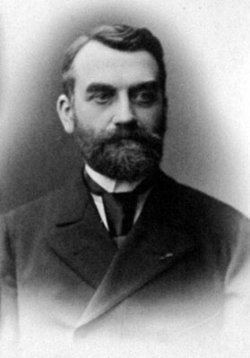Possibilism
From Geography
Possibilism is a concept that is most commonly associated with the work of the French geographer Vidal de la Blache (Johnston, Gregory, Pratt and Watts, 2000). Vidal de la Blache developed this geographical approach as a reaction to a more traditional geographical way of thinking, which is known as environmental determinism. While this latter tradition “regarded all the facets of human activity (from farming practices to political systems) as ultimately determined in character by the natural-environmental context” (Cloke, Philo & Sadler, 1991, p. 64), the former way of thinking about the relationship between people and their surroundings is shaped by the idea that “the natural environment offers possible avenues for human development, the precise one chosen being very much a human decision” (Cloke et al., 1991, p. 65). This is not to say that people are completely free to determine their own directions, but rather it assumes that there exists a “ongoing ‘dialogue’ between natural environments and the human communities they support” (‘milieux’ and ‘civilisations’), which, according to Vidal de la Blache, results in a “human world full of different genres de vie (‘lifestyles’), distinctive to particular people living in particular places” (Cloke et al., 1991, p. 64). Thus, possibilism explains that the environment does not dictate what people would become, but rather that the environment offers the opportunities for people what they choose to be. People adapt to the different conditions the earth has to offer at different places and that is how different living conditions and habits arise. (Tatham, 1951, p.167)
Vidal de la Blache [1]
It was the French historian Lucien Febvre who elaborated further on the concept of possibilism, by writing that, when it comes to human behaviour in relation to their environment, “there are no necessities, but everywhere possibilities; and man, as a master of the possibilities, is the judge of their use. Thus, according to Febvre, because of the fact that men have the most influence as a geographical agent on the earth , we should put man in the first place, and no longer the earth, nor the influence of climate, nor the determinant conditions of localities” (Febvre, in Johnston et al., 2000, p. 609).
Both Vidal de la Blache and Lucien Febvre believe that nature, in this case, is not mandatory but permissive. This can be seen as the core conviction of the possiblists (Bonnett, 2008, p.33).
It can be stated that this idea of possibilism forms an important antecedent of humanistic geography, given the common emphasis laid on “the thought and action of human beings and their ability to exert some independent control over their own destinies” (Cloke et al., 1991, p. 65), or, in other terms, on the idea of human agency.
Other authors involved in developing possibilism are Isaiah Bowman and Carl Sauer. These writers were both from the United States of America (Tatham, 1951 p.151
References:
Bonnett, A. (2008) What is Geography?. London: SAGE.
Cloke, P., Philo, C. & Sadler, D. (1991) Approaching Human Geography. London: Chapman.
Johnston, R., Gregory, D. Pratt, G. & Watts, M. (2000) The Dictionary of Human Geography, 4th edition. Cambridge: Blackwell Publishing
Tatham, G. (1951) Geography in the twentieth centuryNew York: The philosophical library.
Contributors:
Links repaired and added by Robbert Wilmink --RobbertWilmink 16:36, 11 November 2011 (CET)
Page enhanced and added by Rens Mennen -- RensMennen 13:33, 6 October 2012 (CET)
Page enhanced and added photo by Kasper van de Langenberg 30/12/12
